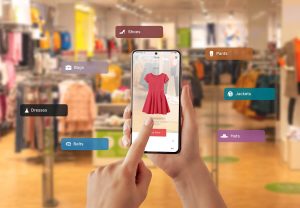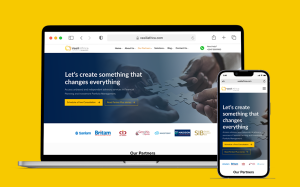Ever noticed how some brands just click with their audience? Like that time I was scrolling through Instagram and came across a Kenyan coffee brand that spoke about their product not just as coffee, but as “your morning story maker.” It wasn’t just selling coffee; it was speaking the language of young Kenyan professionals who see their morning cup as the start of something amazing.
That’s the power of a well-crafted brand voice. And today, I’m going to show you how to develop one that truly connects with your audience.
Why Brand Voice Matters in African Markets
Let me share something that happened last year.
We were working with a tech startup in Nairobi that was struggling to connect with its target market. Their social media posts felt rigid and overly formal—like they were crafted for a corporate boardroom, not the everyday Kenyan audience. Once we helped them embrace a more locally authentic voice – mixing professional insights with the warmth and community spirit that resonates with Kenyan audiences – their engagement rates tripled in just two months.
The Local Connection Advantage
In African markets, authenticity isn’t just a buzzword – it’s everything. Our consumers can spot an inauthentic brand voice from miles away. They’re looking for brands that understand their daily experiences, challenges, and aspirations.
1. Finding Your Brand’s True Voice
Start With Your Why
Before you worry about how you’ll sound, you need to know who you are. At Shupav Group, we always start with these three questions:
- What problem are you really solving?
- What makes your approach uniquely African?
- What values drive your business?
I remember working with a local beauty brand that was trying to compete with international companies. Their initial messaging focused on “world-class quality” – but we discovered their real strength was understanding Kenyan women’s specific beauty needs and celebrating local definitions of beauty. Once they embraced this in their voice, their message became much more powerful.
Know Your Audience – Really Know Them
Here’s a mistake I see too often: brands assuming they know their audience based on basic demographics. But in our diverse African markets, you need to go deeper.
Quick Tip: Create a WhatsApp group with some of your most engaged customers. We did this for a client in the fashion industry, and the insights we gained about how their customers actually talk about style and shopping were eye-opening.
2. Crafting Your Voice Characteristics
Think of your brand voice as a person. Is it:
- A wise aunt who always has practical advice?
- A tech-savvy friend who makes complex things simple?
- A motivated mentor who pushes people to achieve more?
The Three-Word Exercise
Pick three words that define your brand voice. But here’s the crucial part – expand on each:
- Word 1: What it means
- Word 2: What it doesn’t mean
- Word 3: How to use it
For example, one of our clients chose:
- Bold (but not aggressive)
- Warm (but not overly casual)
- Knowledgeable (but not condescending)
3. Making It Work in Practice
The Language Mix
One of the most common questions I get is about language mixing. Should you use Sheng? Swahili? English? The answer depends on your audience, but here’s a good rule of thumb: Mirror your audience’s natural communication style.
A success story: We worked with a fintech company that was struggling to explain their services to their main target audience who were youths. By incorporating common Swahili and Sheng terms in their explanations, their message suddenly became much clearer and more relatable.
Channel Adaptation
Your voice stays consistent, but your tone adapts. Think of it this way:
- LinkedIn: Your professional outfit
- Instagram: Your smart casual wear
- TikTok: Your weekend style
4. Common Pitfalls to Avoid
The Formality Trap
Many African brands fall into the trap of being too formal because they think it makes them sound more professional. Trust me, you can be professional without sounding like a legal document.
The Copy-Paste Problem
I once saw a local brand directly copy Netflix’s witty social media style. It fell flat because it wasn’t authentic to their brand or market. Inspiration is good; imitation isn’t.
5. Measuring Success
Here’s how you know your brand voice is working:
- Engagement rates increase
- Customer service interactions become more positive
- User-generated content starts using your brand language
- Customer feedback mentions connecting with your brand
Real Numbers Talk
One of our retail clients saw a 45% increase in social media engagement and a 30% increase in customer service satisfaction scores after we helped them develop a more authentic brand voice.
6. Getting Started: Your Action Plan
- Audit your current communication
- Survey your customers about how they perceive your brand
- Create a brand voice chart
- Train your team
- Monitor and adjust
The Brand Voice Chart Template
Here’s a simple template we use:
| Characteristic | Description | Do | Don’t |
|---|---|---|---|
| [Example: Friendly] | [Warm, approachable] | [Use conversational language] | [Be overly familiar] |
Conclusion
Remember, finding your brand voice is a journey. It takes time, testing, and tweaking to get it right. But when you do – when you find that sweet spot between professional and relatable, between local and aspirational – that’s when the magic happens.
I’ve seen it transform businesses right here in Kenya, and Africa at large. From small startups to established brands, a strong brand voice can be the difference between being just another business and becoming a brand people love and trust.
Ready to start developing your brand voice? Remember: be authentic, be consistent, and most importantly, be true to your African identity and values.
Need help finding your brand voice? Drop us a chat at Shupav – we love helping brands find their authentic voice in the digital space.
Unlock the Power of an Authentic Brand Voice
Developing a strong, authentic brand voice is crucial for effective marketing communication in African markets. When you find the right voice, you’ll see:
- Increased customer engagement and loyalty as your brand connects more deeply with your audience.
- Higher conversion rates as your message resonates powerfully with the right people.
- Stronger brand differentiation in crowded, competitive industries.
- More effective positioning as an authority and trusted expert in your field.
Don’t settle for a generic, one-size-fits-all brand voice.
Invest in crafting an approach that truly speaks to the hearts and minds of your African customers. It’s the secret ingredient that can transform your marketing communication and propel your business to new heights.











